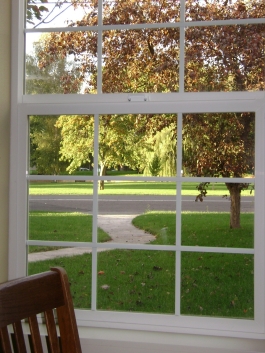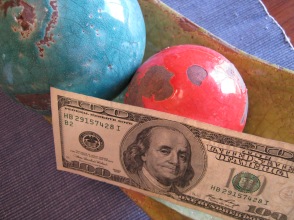Tags
home, House, investment, million dollars, mortgage, pay cash, rent or buy
Or “How Not to Lose a Million Dollars Buying a House”
How often have you heard someone say “I’m sick of throwing away money on rent so I’m buying a house.” Why do people think this? After all, you can rent from a landlord with little risk or “rent” from the banker with a lot of risk. Why do people think they’ll automatically be financially ahead if they buy a home?
Our house, as an investment, has been awful. We bought it in a great location at a time when home prices were going up, up, up in our area. How could we go wrong with that? Yet we had no idea we were n early at the height of a housing bubble, and it was about to burst. The short story is, after the bubble popped and even with an economic rebound that continued for ten years afterward, our “investment” gained us a whopping 1% average annual return minus mortgage interest, taxes, insurance and upkeep. A terrible investment. We lost big time.
early at the height of a housing bubble, and it was about to burst. The short story is, after the bubble popped and even with an economic rebound that continued for ten years afterward, our “investment” gained us a whopping 1% average annual return minus mortgage interest, taxes, insurance and upkeep. A terrible investment. We lost big time.
But we love our home and don’t regret buying it at all. Why? It has to do with the advice that we often give people about buying a house: Buy a house because of the location in a great neighborhood, or the view, or proximity to your favorite people or places, or to have a big yard or grand garden, or to raise a family, or to have a bunch of animals. These “wants” for owning a house, however, will cost you big time. If you’re not okay with that, then keep renting.
All About the Math
The main reason that buying a home is not really a good investment is simple. Simple math, that is, that the banks would rather you didn’t do. If you buy a house and get a mortgage, your home will have to appreciate by up to 7% or more a year just to break even (with inflation factored in this number could be 10% or more). Do the math: Add up the annual cost of your mortgage interest, maintenance, property taxes, and insurance. Divide it by the value of your home. Don’t forget to add the annual inflation rate on top of that. It all adds up to a pretty hefty annual percentage rate. Are home prices going up by that rate in your area? Even if they are, for how long can you count on that before the market has to correct?
If you want to reduce the magnitude of this poor investment choice, then the best thing you can do is pay cash for a house. Seriously, you should.
 Why Pay Cash For A House?
Why Pay Cash For A House?
Answer: Because you may lose a million dollars otherwise.
Example: If you buy a house for $250,000, put a $50,000 down payment, and get a 30 year mortgage for the remaining $200,000, the lost investment opportunity could be worth well over ONE MILLION DOLLARS! Do the math. Assume monthly interest payments made to the bank on your loan balance given an annual interest rate of 5% over 30 years, and what that same amount of monthly mortgage interest if invested elsewhere could have become if it returned 8% annually.
Bottom line is this: Buy a house because you want a home, not fooling yourself into thinking you are making some great investment when you’re really losing a million (unless you pay cash or pay it off way early!).
